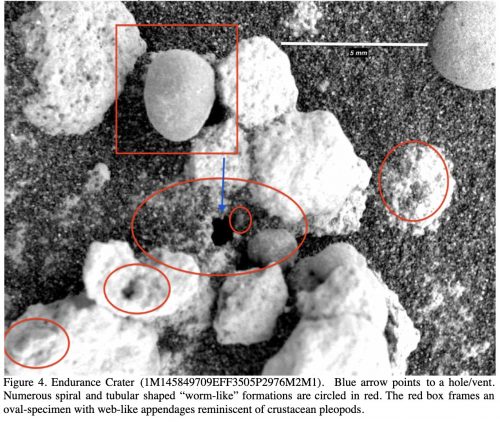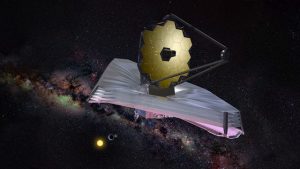I have addressed the nonsense about cancer as an atavism multiple times here, and I even made a video about it. Paul Davies is a medical crackpot, and his pal Charley Lineweaver is just as goofy, but it seems they noticed me, and I got a nice polite email from Lineweaver about it.
Hi PZ,
I just came across your video
I plead innocent of subscribing to the Haeckelian view that
“Development stages recapitulate adult evolutionary stages”
at 14:38 of your video.
If you remove the word “adult” then I would agree more with the statement.
You might be interested in our two recent papers (attached).
Also, as a biologist, you might be interested in an online video course
I just put up at arewealone.usIt’s got a lot of biology in it.
If you find any egregious mistakes, please let me know.
Yours for better science,
Charley Lineweaver
First, I would note that removing one word doesn’t help: “Development stages recapitulate evolutionary stages” is just as bad as “Development stages recapitulate adult evolutionary stages”. Development does not recapitulate the evolutionary history of the organism. Are we going to claim that mammals evolved from an ancient ancestor with a trophoblast that attached to a larger organism to leech off its fluids? Of course not. Mammalian extra-embryonic membranes are great examples of an evolutionary novelty appearing at a time in development that does not reflect a phylogenetic sequence.
As for his claim that cancers are atavistic reversions to a primitive state, see the links I posted above. Enough said. It’s garbage science. I’m just mildly horrified that yes, he sent me two more papers on the subject, published in 2021, and the idea is still getting published in respectable journals. Maybe I’ll dig into those papers some other time, but I think it’s sufficient to dismiss them out of hand since they provide no new information, and are just more exercises in frantic handwaving. Flap, flap, flap, oh look, we made another paper. Flap, flap.
I was mildly intrigued by the web site he mentioned, calling it an “online video course”, which it isn’t. It also doesn’t have much biology in it. But you be the judge: visit arewealone.us for yourself.
It was very nice of him to include a video summary of the “course”, titled “The Course in 7 Minutes”. Great, I can spare 7 minutes!
I didn’t even give it 7 minutes, I’m afraid. I skipped a lot, missing nothing of substance, because all it is is an excerpt from Beethoven’s Fifth played while random images flash by. There is no content there. There are no words, no explanations, not even an attempt to stitch any kind of story or explanation to it. It’s an incoherent mess. It is an accurate summary of the “course”, I’ll give him that.
I dug deeper, and he does have kind of a syllabus.
Week 1 – What does “Are We Alone?” Mean?
Week 2 – Our Evolution Over 20 Million Years
Week 3 – Our Evolution Over the Past 500 Million Years
Week 4 – Our Evolution Over the Past 3 Billion Years
Week 5 – Our Evolution Over the Past 4 Billion Years
Week 6 – Origins of Life: What is Life?
Week 7 – Intelligent Extraterrestrials?
Week 8 – More Conversations with Experts
Each of those entries is a link to more videos, and once again, we descend into chaos. Lineweaver’s approach seems to be to ask various of his science friends to let him interview them, and he drops by and sets up a camera in their office and asks a bunch of questions, like these:
This video-based course probes the question “Are we alone?” Unlike SETI scientists, Mars rovers and planet-hunting astronomers, we take a biological approach and ask: “How did WE get here?” Like salmon swimming upriver to the pond where they were born, we are led upstream from whence we came. We take a pilgrimage into the past to the origin of life 4 billion years ago. During this evolutionary odyssey with astrobiologist Charley Lineweaver, we ask: Who is “we”? Why did our brains get so big? How did life get started? Are viruses alive? What is life? Answers to these questions may help us get from How DID life start? to How DOES life start?
This leads to a confusing collection of short (typically 5-6 minutes) video interviews. There is no synthesis. There are no answers, not even an attempt to assemble some kind of consensus. I watched a few and then gave up.
If I were asked, “are we alone?”, my answer would be something like, “I don’t know, but probably not. I think the prebiotic chemistry that led to life is probably universal, so it could be common, but we’ve got an n of 1 so far. If we found signs of ancient life on Mars, though, that would increase the probability of life of some sort being common.” That’s all we’ve got so far. I also think that anyone who says yes, absolutely, or no, absolutely, isn’t worth talking to further.
I would turn the questions about, though, and ask how Charley Lineweaver, an honorary associate professor at the Research School of Astronomy and Astrophysics and Research School of Earth Science at the Australian National University, a man with an advanced education that is entirely in physics, who has a PhD in physics from Berkeley, gets to call himself an astrobiologist, and does that mean I get to call myself an astrophysicist, despite an education that was almost exclusively in biology, and despite having a position as a biology professor?
Oh, wait. He also says he is “the son of a high school biology teacher”, so I guess he inherited his parent’s qualifications. With that logic, that means that my father’s line of work means I get to call myself a diesel mechanic now. Or maybe an astro diesel mechanic?













